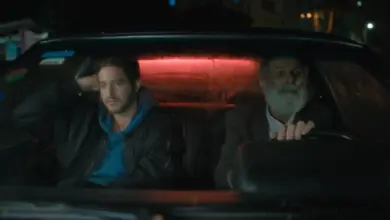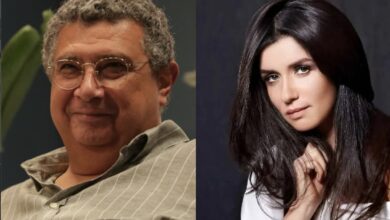Part of the Panorama of the European Film currently held in Cairo, "Un Prophete" is one that’s difficult to watch.
French director Jacques Audiard’s fifth feature film may not be hard to follow, but it’s still not easy to watch. At times unbearably tense, "Un Prophete" tells the story of young Arab, Malik el-Djebena, who is sentenced to serve six years in prison. Scared, illiterate, and with no friends on either side of the prison walls, Malik knows he’s in a vulnerable position. When a gang of Corsican inmates force him to kill another prisoner in return for their protection, Malik initially resists before realizing that in order to survive in this violent new world, he must adapt to its harsh rules.
While the story may sound familiar, it’s told in a way that’s undoubtedly effective. Malik’s crime is never really focused upon: the emphasis here is not so much on the cause as it is on the consequence. The past is irrelevant, it is the here-and-now that must be dealt with–a lesson Malik quickly learns. Forced by the brutal prison routine to undergo a rebirth of sorts, the character that emerges at the film’s end is a far cry from the opening scene’s trembling nineteen year old.
In his first starring role, Tahar Rahim does an outstanding job. "Un Prophete" is as heavy as a boulder, and Rahim is in virtually every scene. He not only carries the weight of the film, but also takes his character through a complex transformation process in a performance that is both mesmerizing and deeply disturbing.
Audiard’s directing is also aggressively compelling, as if someone is holding a razor-blade to the viewer’s eye. The film is told with a cold eye and an even colder heart, and the internal ugliness of its characters, whether inmates or guards, is depicted without a flicker of emotion. Surprisingly, "Un Prophete" has some genuinely funny moments, but it’s the type of humor that slices through your heart to reach the funny bone.
At 150 minutes long and with minimal locations and actors, "Un Prophete" does drag at times. However, this is not an action film, but a film about life (or survival, to be more accurate) in prison, and some scenes exist only to depict the bleak monotony of that life. Either way, with an atmosphere this tense, the long scenes of nothing can be horribly nerve-wracking.
Audiard also applies some interesting stylistic touches. The soundtrack and, the ‘title-cards’, for example, a warped ‘gangster film’ sensibility to events, hinting at what might be going on in Malik’s head. Initially shocked by the violence and cruelty of his new home, Malik eventually comes to see himself first as a survivor, and ultimately as kingpin. The violence, which arrives in sudden, shocking bursts during the film’s opening scenes, soon fades into the background as it becomes part of Malik’s daily existence: something he eventually thrives on. As Malik dodges bullets in the film’s climactic shootout, he slowly turns, looks straight into the camera, and smiles. He’s the hero of his own action movie.
The aforementioned touches are also effective send-ups of gangster films as a genre, with their tendency to glorify criminals and to glamorize violence. Audiard applies the same techniques which make those films ‘cool’. However, he does it in a way that is cynical, amusing, and most importantly, illuminating. This isn’t another case of style over substance, it’s about making substance out of style.
Cinematographer Stéphane Fontaine uses mostly hand-held camerawork. While similar films have also utilized documentary-style shooting to add realism, Fontaine is using the same technique but to achieve a different artistic and sophisticated style. The results are chillingly effective. The opening scenes, with Malik staring blankly through the barred windows of the vehicle taking him to prison, watching gardens and people roll by, convey a loss of freedom and regret so strong it’s hard for the viewer not to panic. Fontaine’s frames are so tight, the effect is intensely claustrophobic, placing the viewer firmly in Malik’s shoes every difficult step of the way.
With Audiard’s direction, Fontaine’s bleak imagery and Rahim’s exhilarating performance, "Un Prophete" is a true tour de force.
"Un Prophete" is a French language movie, with English and Arabic subtitles, and is currently showing as part of the 2nd Panorama of European Film, held at City Stars Cinema.



